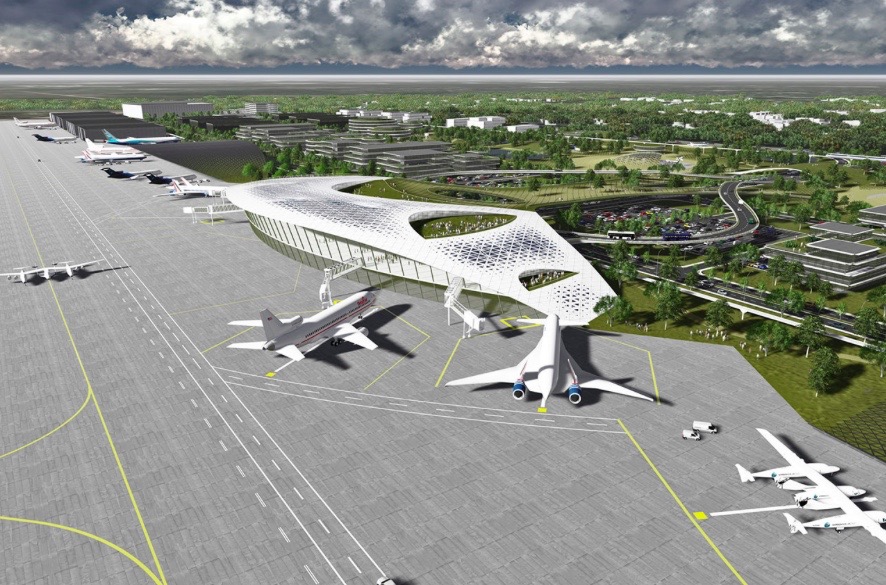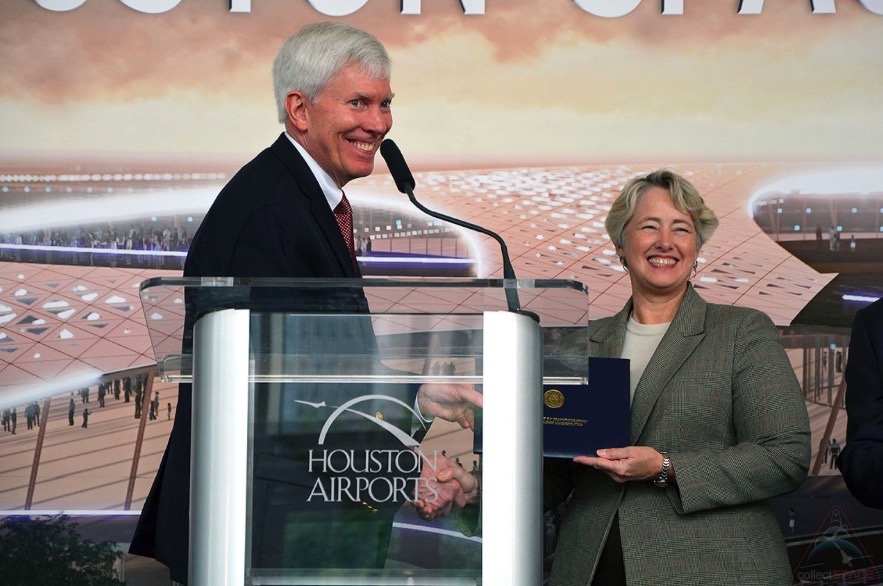Houston, We Have a Spaceport: FAA Gives 'Space City' License for Launches

HOUSTON — The Houston airport where astronauts have departed on training flights for more than 50 years is now host to the United States' newest commercial spaceport.
The Houston Airport System (HAS) on Tuesday (June 30) was granted a launch site license from the FAA (Federal Aviation Administration) establishing Ellington Airport near the NASA Johnson Space Center as the tenth commercial spaceport in the country.
"Houston has a rich history in space operations. We have a first-class airport system that already connects Houston to the rest of the globe. We want to make sure that airport system is part of connecting Houston to space," Houston Mayor Annise Parker said at a press conference Tuesday. [The Top 10 Private Spaceships]
The spaceport announcement came nearly two years after the Houston City Council first supported the project. The FAA license paves the way for Ellington to potentially host a number of commercial space operations, from launching micro-satellites to spacecraft manufacturing.
Launches from the new Houston Spaceport will be limited to vehicles that take off and land like an aircraft.

"Not all launches into space need to be vertical launches," explained the mayor. "We can do horizontal launches and, over time, that's exactly what we expect to have happen."
Sierra Nevada Corporation, with its vertically launched but horizontally landed Dream Chaser space plane, earlier this year signed an agreement with HAS to use the spaceport as a landing site. The company has proposed the Dream Chaser to NASA to deliver cargo to and from the International Space Station under a commercial services contract.
Get the Space.com Newsletter
Breaking space news, the latest updates on rocket launches, skywatching events and more!
Similarly, Intuitive Systems, which is developing a vehicle capable of landing scientific and engineering samples from the space station, announced Tuesday its desire to be an anchor tenet at Ellington.
Other horizontally launched (and landed) vehicles are now being developed to support flying space tourists, including Virgin Galactic's SpaceShipTwo and XCOR Aerospace's Lynx.
"I am absolutely convinced that in just the next few years, we are going to see multiple companies offering suborbital human spaceflights on a regular, frequent basis," George Nield, FAA associate administrator for commercial space transportation, said. "It won't be long before we are seeing several suborbital flights per week, and eventually, one or more launches per day."
Nield and Parker were joined at the press conference by Johnson Space Center director and former astronaut Ellen Ochoa in noting how NASA's proximity bolstered the case for the Houston Spaceport. Ellington Airport hosts today a fleet of about 25 NASA aircraft — including T-38 astronaut training jets, several hangars and office space.
"It is certainly appropriate that the place known as 'Space City' is taking the next step forward in the progression of aerospace activities," Ochoa commented. "It is natural the city embraces the opportunities that are opening up for the commercialization of space by taking advantage of the expertise within NASA and the aerospace community that supports us here."
"We're currently discussing a partnership that will use our safety knowledge, and we're working with the spaceport on activities like a technology collaboration center," she said.
The space agency's involvement is one of the three main reasons why Parker said the Houston Spaceport is primed to compete for commercial space business.
"We have three things that no other spaceport in America has," the mayor stated. "We have an existing airport [and] we have existing space-oriented infrastructure around the private infrastructure. And we have a history in space, like no place else in America has."
"We think we can be highly competitive with the others — spaceports that have been created from nothing with large subsidies from their states," she concluded. "We're going to start at a much higher level, and we believe we can gain ground quickly going forward."
Click through to collectSPACE to watch a video about the plans for Houston Spaceport.
Follow collectSPACE.com on Facebook and on Twitter at @collectSPACE. Copyright 2015 collectSPACE.com. All rights reserved.
Join our Space Forums to keep talking space on the latest missions, night sky and more! And if you have a news tip, correction or comment, let us know at: community@space.com.

Robert Pearlman is a space historian, journalist and the founder and editor of collectSPACE.com, a daily news publication and community devoted to space history with a particular focus on how and where space exploration intersects with pop culture. Pearlman is also a contributing writer for Space.com and co-author of "Space Stations: The Art, Science, and Reality of Working in Space” published by Smithsonian Books in 2018.In 2009, he was inducted into the U.S. Space Camp Hall of Fame in Huntsville, Alabama. In 2021, he was honored by the American Astronautical Society with the Ordway Award for Sustained Excellence in Spaceflight History. In 2023, the National Space Club Florida Committee recognized Pearlman with the Kolcum News and Communications Award for excellence in telling the space story along the Space Coast and throughout the world.










